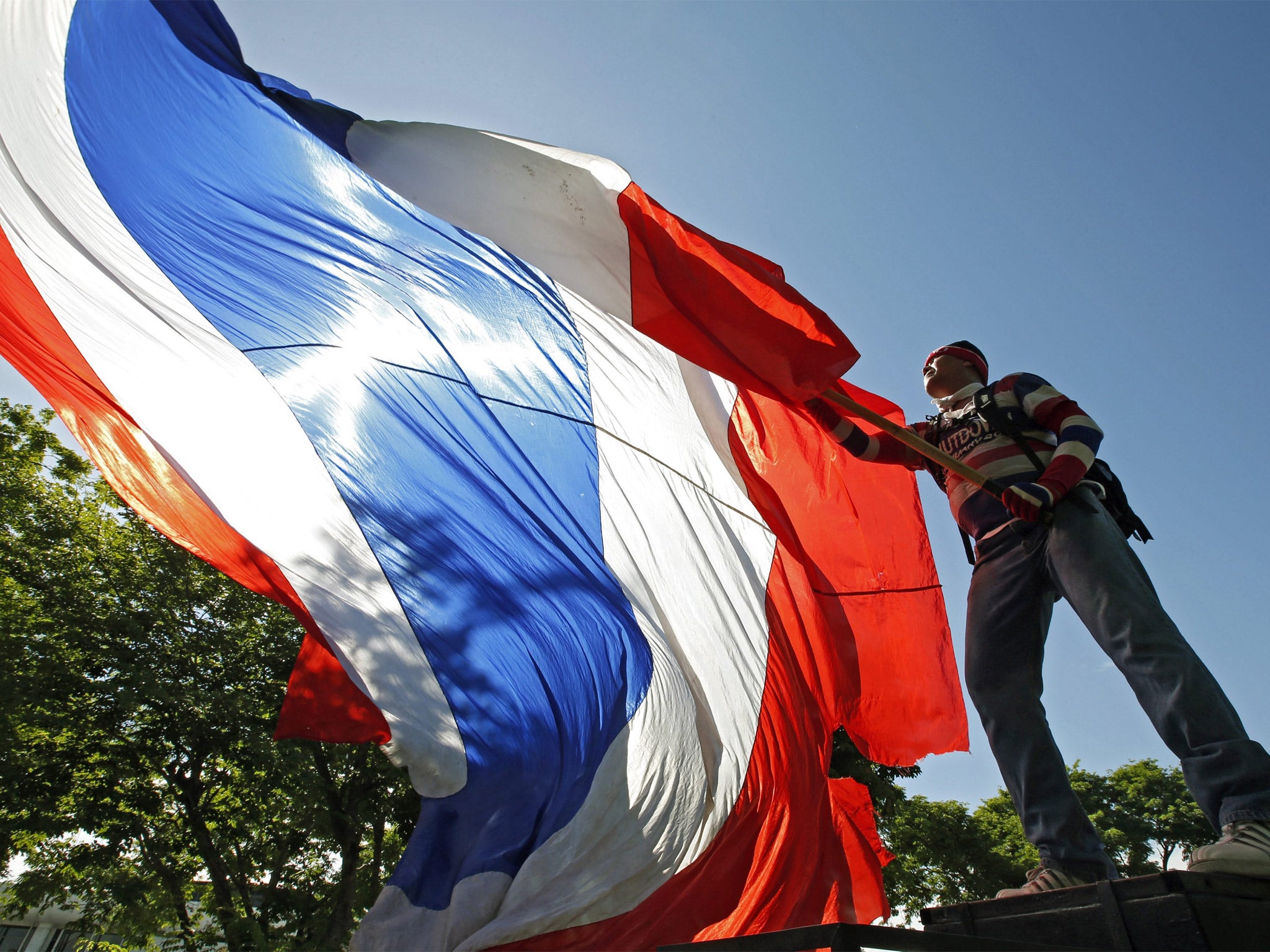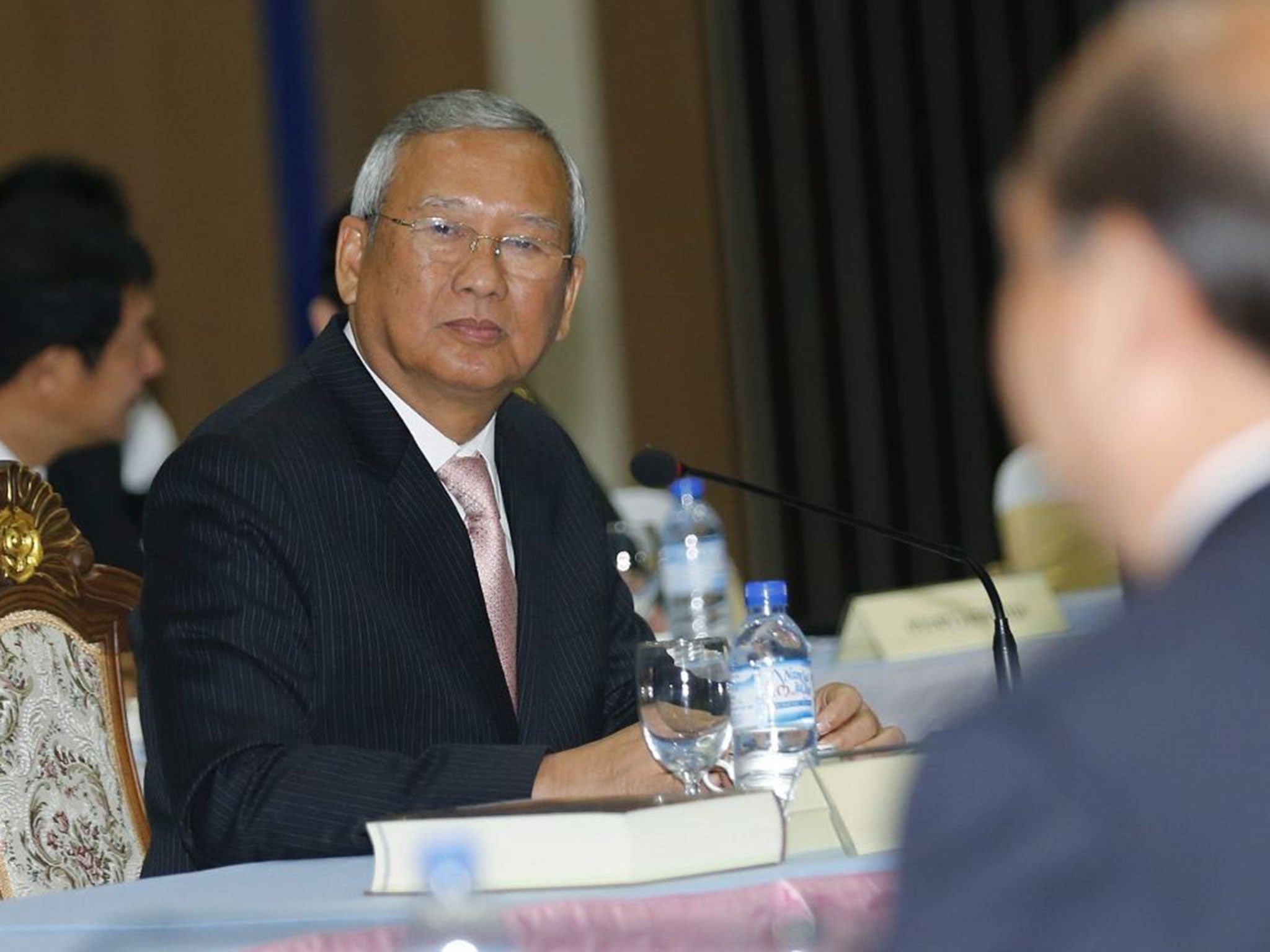Thailand unrest: Army chief warns troops could step in
Statement comes after three protesters killed by unidentified gunmen close to Bangkok’s Democracy Monument

Your support helps us to tell the story
From reproductive rights to climate change to Big Tech, The Independent is on the ground when the story is developing. Whether it's investigating the financials of Elon Musk's pro-Trump PAC or producing our latest documentary, 'The A Word', which shines a light on the American women fighting for reproductive rights, we know how important it is to parse out the facts from the messaging.
At such a critical moment in US history, we need reporters on the ground. Your donation allows us to keep sending journalists to speak to both sides of the story.
The Independent is trusted by Americans across the entire political spectrum. And unlike many other quality news outlets, we choose not to lock Americans out of our reporting and analysis with paywalls. We believe quality journalism should be available to everyone, paid for by those who can afford it.
Your support makes all the difference.Thailand’s army chief has warned that troops could step in and use force to restore order after a day in which three people were killed and the country’s prime minister was forced to flee after being besieged by protesters. Election officials said it was unlikely an election fixed for July could proceed.
On a day during which the country slipped further towards chaos, Gen Prayuth Chan-ocha issued a statement urging calm and requesting an end to the violence. “I want to warn every group - especially those who use violence and war weapons against innocent civilians - to stop now because if the violence continues the military may be needed to come out to restore peace and order,” he said.
The general’s statement came after three anti-government protesters were killed and more than 20 injured when unidentified gunmen opened fire at a camp close to Bangkok’s Democracy Monument in the early hours of Thursday.
Later, Prime Minister Niwatthamrong Boonsongpaisan was forced to rush out of a meeting with election officials after anti-government protesters broke into the grounds of an air force base where the meeting was taking place.
The incidents on Thursday were just the latest developments in months of turmoil that have reverberated through Thailand where pro- and anti-government demonstrators are involved in a bitter stand-off.
Read More
The prime minister, appointed earlier this month after the previous premier was ousted by a controversial court ruling, had been meeting with officials to discuss the poll, which had been fixed to take place on 20 July. The meeting was taking place at an air force academy outside of Bangkok. According to the Associated Press the location had been chosen for security reasons.
But despite the presence of riot police and other security, about 100 protesters entered the compound through a side entrance, blowing whistles and waving Thai flags. Mr Niwatthamrong and several cabinet ministers at the meeting were alerted to their arrival, ended their meeting and were driven away.

“The government called off the meeting for security reasons,” the Election Commission’s secretary-general, Somchai Srisutthiyakorn, told reporters. He said the government has suggested future meetings be held by teleconference and said it may not be possible for polls to proceed as scheduled if meetings with the government are not possible.
The anti-government protesters, who call themselves the People’s Democratic Reform Committee (PDRC), want the government to stand down immediately and demand that a “neutral” premier be appointed by the upper house of parliament.
They have rejected demands to take part in elections until reforms of the system are carried out because they say the voting is rigged. They have fixed a deadline for this to be carried out by Friday although arrest warrants have been issued for 30 of the protest leaders.
They also believe that former prime minister Thaksin Shinawatra, or his sister Yingluck Shinawatra, should have no role in the country’s politics.
Meanwhile, Red Shirt supporters of the government and the Thaksin family are equally adamant they will not stand down. Some officials have warned of the possibility of civil war and have suggested the country could even split. Mr Thaksin has large scale support from rural and small-town Thais, especially in the north and north-east.
Many observers believe the military may think twice before choosing to get involved in the polarised stand-off that has developed and the army chief has made similar comments in recent months.
However, few in Thailand would ignore his words. The army has been responsible for 18 previous coups. In 2006, when Mr Thaksin was forced out by the military while he was out of the country, his opponents launched widespread protests to create an unsettled situation and urged the general to step in.
Duncan McCargo, a Thailand expert at the University of Leeds, said: "I continue to believe the Thai army would very much prefer not to intervene. The 2006 coup was a disaster, not just for the country, but more importantly - in their eyes - for the standing and reputation of the Thai military."
He added: "Seizing power is relatively easy, but handling the difficult transition that would follow is going to be incredibly difficult."
Join our commenting forum
Join thought-provoking conversations, follow other Independent readers and see their replies
Comments